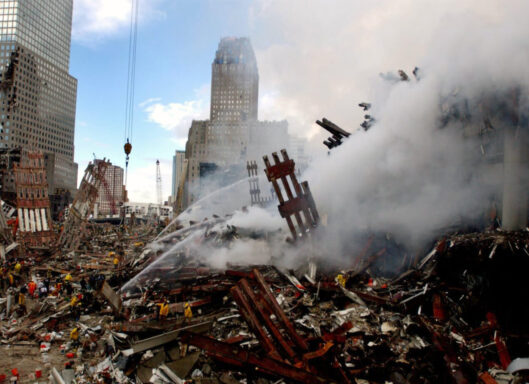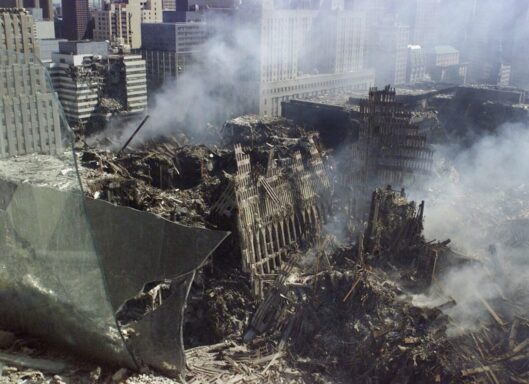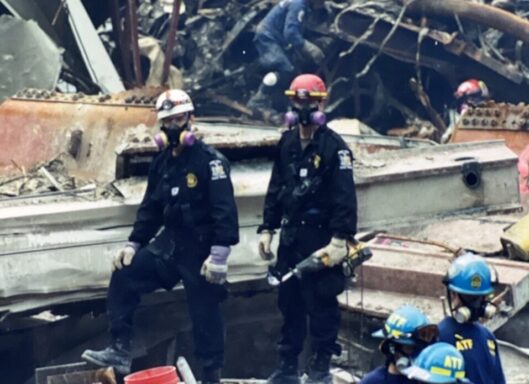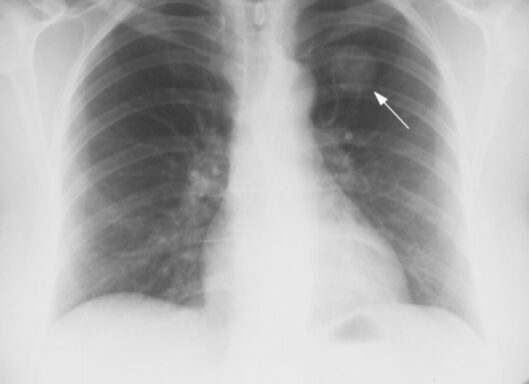Ground Zero: A 9/11 First Responder’s Story of Duty and Resilience

Less than 24 hours after the collapse of the World Trade Center towers, a lone vehicle sped across the empty expanse of the George Washington Bridge, heading straight for Manhattan. To the right, a towering column of smoke and debris loomed on the horizon, obscuring the skyline and cloaking the city in a heavy shroud of despair.
Inside the car, members of an elite New York State Police tactical unit known as the Special Operations Response Team (SORT) stared out at the unfolding devastation.
As they approached Ground Zero, they were engulfed by a massive wall of dust, akin to a storm rolling across a highway. The once-vibrant streets of New York City faded into a monochrome landscape as the air grew thick and gray. They pressed on until they reached the New York City command post at Liberty Plaza, just a stone’s throw from where the Twin Towers had stood a day before.

The scene that greeted them was surreal. Office papers fluttered through the air, carried by winds born from the unimaginable force of the collapse. The team had come prepared to launch rescue operations, but what they found instead defied belief.
Ron Pastino, an Army veteran and SORT member, stood amidst the rubble, overwhelmed by the sheer scale of destruction.
“I remember looking up at the pile,” he recalled. “It was towering—maybe ten stories high. Immense. I turned to a teammate and said, ‘It’ll take at least a year just to get this level.’ The sight of those twisted 50- and 100-foot beams… it was beyond comprehension.”

With grim resolve, the SORT team chose their spot and began the painstaking task of searching for survivors, navigating through the maze of debris, ducking beneath steel beams, and dodging the small pockets of fire that still smoldered around them.
Overhead, fighter jets roared through the sky, a constant reminder of the unprecedented circumstances.
“I felt like I was in a war zone,” Ron reflected. “But this was my home, my city.”
As Ron descended into the tangled wreckage, the reality of the situation grew even more harrowing. He found himself surrounded by the scattered contents of wallets—driver’s licenses, IDs, credit cards—and piles of shoes, blown off by the immense force of the collapse. Among the debris, a single driver’s license caught his eye, resting on a dust-covered beam.
“I picked it up and saw this woman’s face,” he said quietly. “I didn’t know her, but I looked at that photo and said, ‘We are going to find you,’ and then, ‘I love you.’ And I meant it. To this day, I still do. I just know she didn’t make it out.”
The enormity of the loss settled over him, as inescapable as the dust that blanketed the debris.
“That’s what haunts me the most,” Ron shared. “The innocence of those people. They were just going to work, being productive Americans. And then a group of evil, evil people stole that from them. They took their lives.”
For seven months, Ron and the SORT team were stationed at Ground Zero, alternating between the site and their homes. For the first 11 days, Ron wore the same clothes, too consumed by the mission to think about anything else.

What he had predicted would take a year was accomplished in mere months, a fact that still astounds him. But the true toll—the mental, physical, and emotional scars—would linger far longer for Ron and many of the first responders.
Trained in special operations, Ron was skilled at compartmentalizing his emotions, focusing solely on the mission. He pushed forward, driven by a sense of duty to his team. One day at a time. One mission at a time.
While their time at Ground Zero ended—nearly eight months after the first plane struck the North Tower—Ron’s duty and responsibility to his unit did not.
For one last time, they washed the dirt and dust from their clothes and drove away from The Pile. Ron wouldn’t return to the World Trade Center site for more than two decades. “It was too painful,” he said.
Despite the horrors of September 11th and the months that followed, Ron continued to excel as a SORT member, playing critical roles in high-profile operations, including multiple active shooter incidents, the infamous Dannemora Prison Break, and the capture of FBI Top Ten Most Wanted fugitive, Bucky Phillips.
Over his 21-year career with the NYSP, Ron’s resilience never wavered. He continued to serve, driven by his unshakeable sense of duty. Yet, even as he pushed forward, his body began to remember what his mind tried to forget.
One day, while out for a routine 3-mile run—something he had done countless times before—Ron felt an unusual fatigue.
“I knew something was wrong,” he said. “I couldn’t put my finger on it, but I just knew.”
When the symptoms persisted, Ron sought medical advice. After ruling out heart issues, a CT scan revealed small nodules in his lungs.
“I’ve never smoked,” Ron said. “But I spent seven months at Ground Zero.”

After a series of tests and consultations, Ron was diagnosed with interstitial lung disease, a condition directly linked to his exposure at Ground Zero. Surgery was required to remove a portion of his lung and several lymph nodes.
While doctors thankfully ruled out lymphoma and cancer, Ron’s condition forced him into early retirement, abruptly ending a career he had devoted more than two decades to. The emotional and financial strain was immense, and the sudden loss of purpose took its toll.
“I lost my career, I lost my salary, and it was hard for me to adjust to being a civilian and understanding the civilian world,” Ron said.
“If you’re struggling out there, you don’t know what you don’t know. It’s not going to be handed to you, and unfortunately, it’s a lot of hard work. You have to put effort into helping yourself and finding organizations or charities that can help you. Leave your ego at the door.
“Always seek self-improvement and keep grinding. When you find an ethical charity or organization, you’ll find people to help you.”
Ron said he, and many other service members and first responders, compartmentalize what they see or experience so they can continue operating at the highest levels. They show up for work or their missions each day, knowing they’ll be part of difficult situations. It often isn’t until they have time to pause that they notice the first indications of post-traumatic stress or mental health challenges.
“We can do a better job of investing in our people before those experiences catch up with them,” Ron explained. “To first responders, military members, and public servants – do not be too proud to seek help. There are so many good people and organizations out there that it evokes hope. Take the help.”
To hear more of Ron’s experiences at Ground Zero, please listen to a special episode of The Lasting Mission podcast as Ron reflects on his journey, the resilience of his team, and the lasting impact of September 11, 2001. Then, stay tuned for a future article where Ron details his health journey and the alternative therapies that changed his life.
Do you have a story or perspective to share with Mission Roll Call? Lend your voice to the conversation and become a member at missionrollcall.org/get-involved.